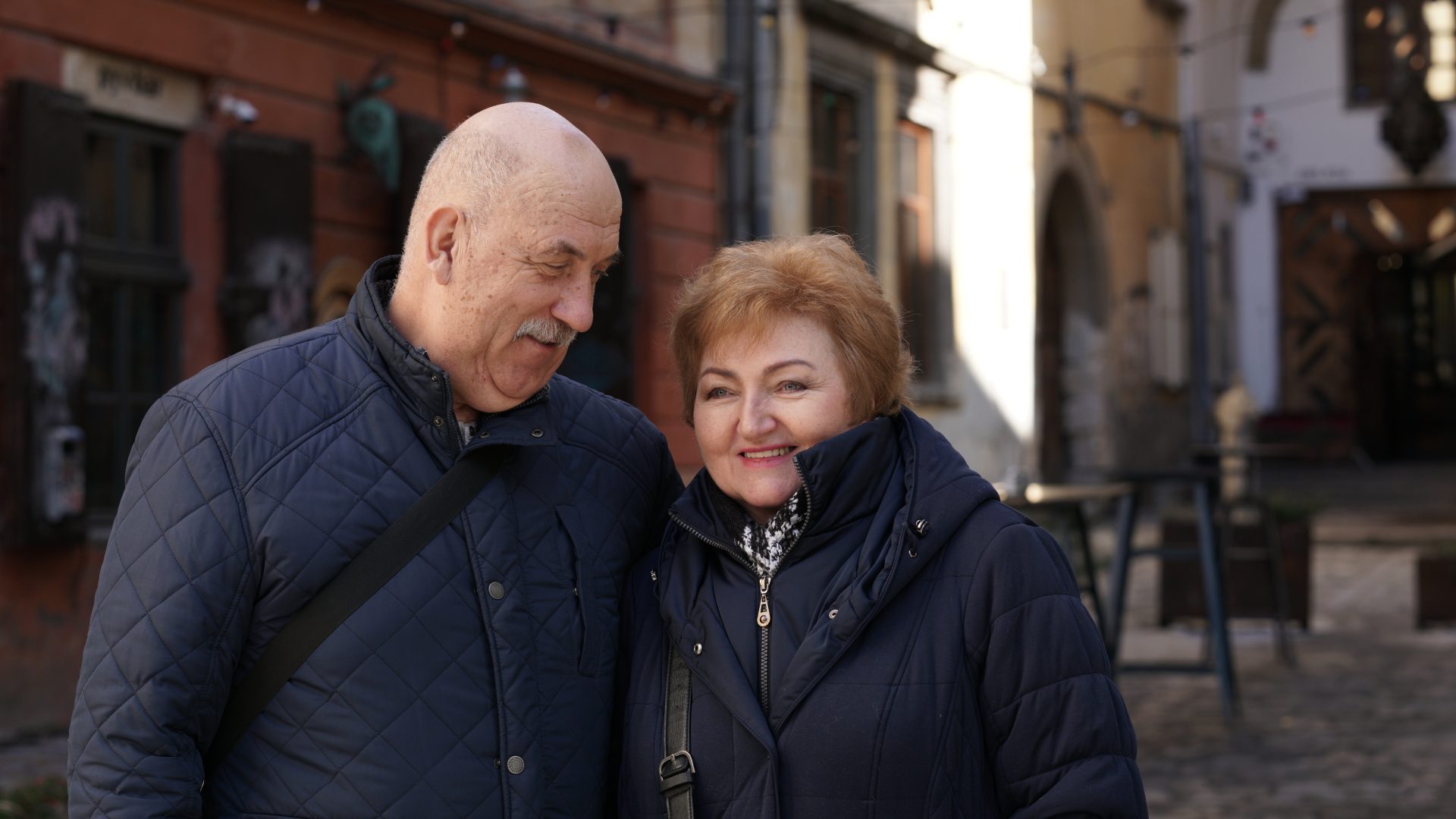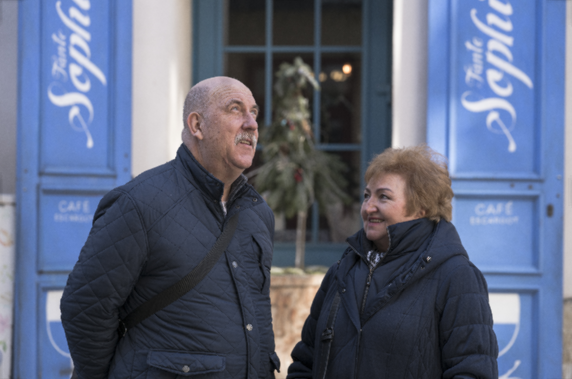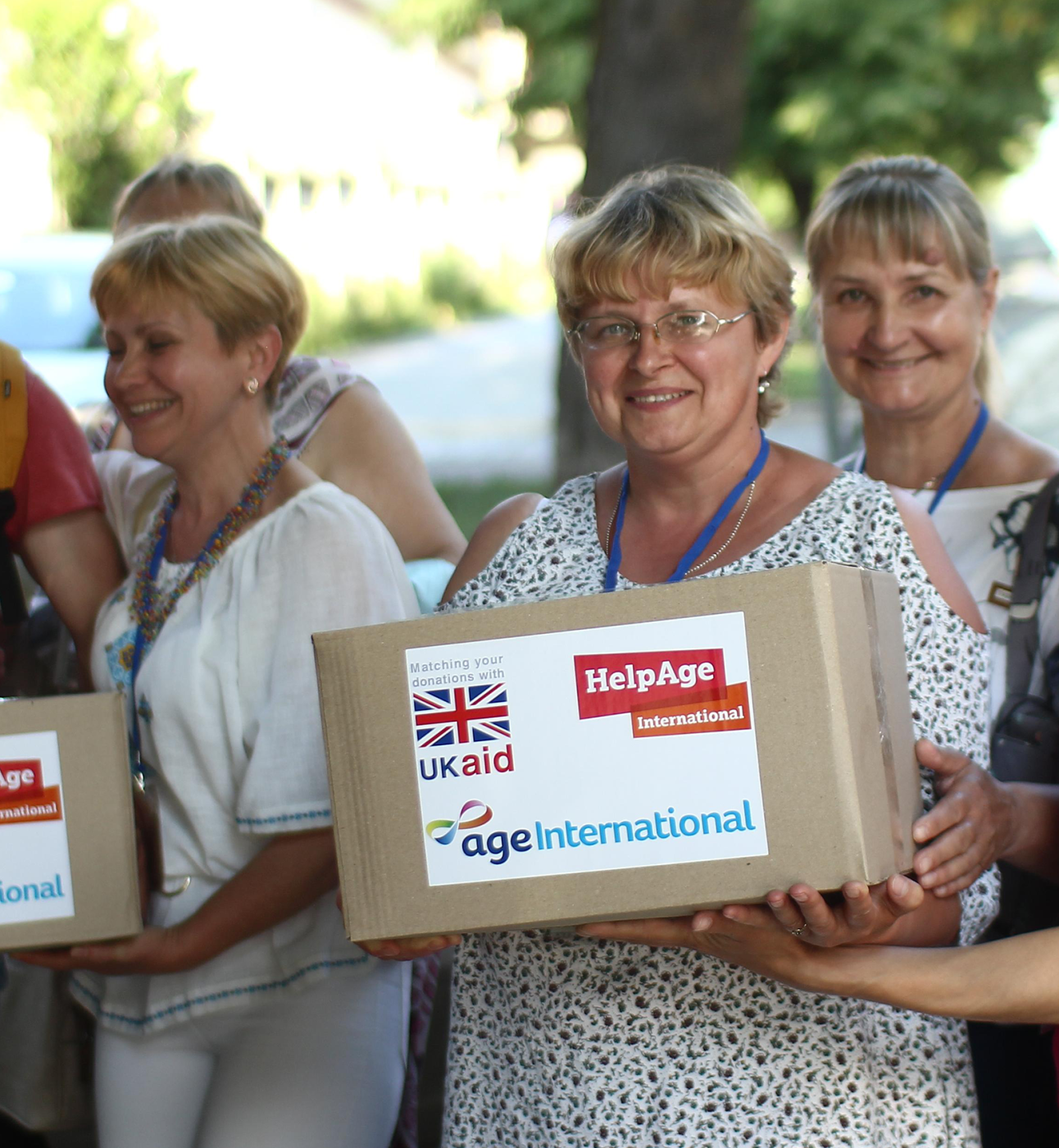When Mykola (64) and his wife Nataliia (65) came to Lviv, they were still reeling from the shock of the war. Having fled their native Sievierodonetsk in the east of the country and been thrust into a crowd of other displaced people, they felt lost and unsure about what to do. Luckily, volunteers helped them find shelter, receive aid for their basic needs, and gave them much-needed time to recuperate.
They had just spent almost two weeks in a bomb shelter when they arrived in Lviv, as their town was being heavily shelled. They hadn’t planned to come this far from home, but the bombs seemed to follow them to all the other places they tried to settle in.
It is the kindness of volunteers that lights up their faces when they remember those early days. And their experience is what motivated them to go from receiving support from HelpAge International to volunteering as social workers for other older people.
“Having gone through the same experience as them, being around the same age, we realised that we are in a unique position to extend the same kindness to others,” Nataliia says.
“I thought, why not help people overcome the difficulties I’ve experienced myself?” Mykola chimes in.
Displacement and trauma of losing everything they had is something they continue to struggle with. Nataliia had to undergo heart surgery and tries to avoid getting too emotional, but she doesn’t always succeed: “I try not to think about the happy life we had. I escape by working hard, helping people, and trying to keep myself busy. But at night, when you close your eyes, everything comes back to you.”



